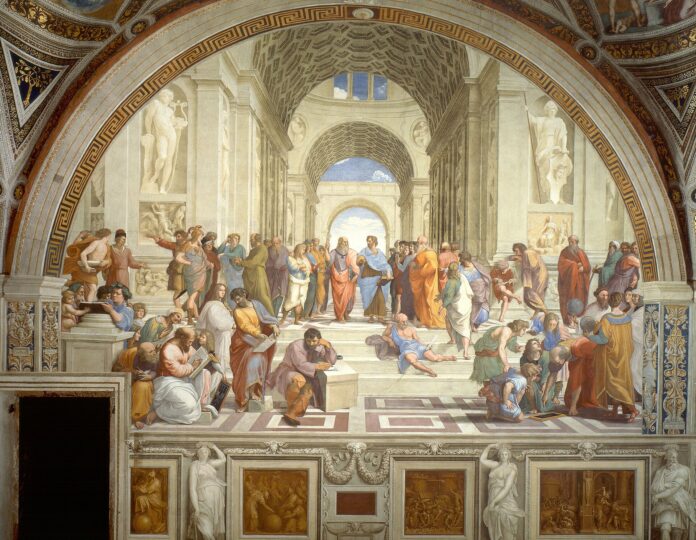It is not hard to think that in recent decades the crisis of parliamentarism is also a consequence of the worsening of the living standards of the middle classes. Poorly managed globalization has led to the growth of what were defined as “Third Countries”. Also, such situation deprived the West of the production processes that favoured middle bourgeoisie’s well-being.
Nationalisms and their enemies
The rebirth of nationalism and protectionism emphasized the countries offering a workforce at very low costs. Even if unintentionally, they also favoured the birth and growth of new economic empires that ended up dominating the institutions of the States without allowing the necessary redistribution of resources. If inequalities grow, distrust in the system also grows.
So it would not be surprising if the populism practiced by leaders like Trump still garnered enough popular consensus by presenting itself as a credible alternative to an very visible impoverishment. Fighting the sovereignism that is growing in both the US and the EU is difficult because simple answers cannot be given to complex problems.
Many questions
How to explain that massive immigration is an epochal phenomenon? How to explain the economic growth of China and India which are taking away capital and work from Europe? How can we explain the reasons for the demographic decline of the old continent and the difficulties that welfare will encounter in a near future? Not to mention the climate emergency, military spending, the fear of atomic war, etc.
Different interests, including economic ones
Sometimes there is no need for explanations. We are beginning to understand that behind the institutions there are economic realities capable of pursuing their interests regardless of the political colour of the rulers. This is where we find the crucial point of the 2024 European consultations. Will the new leaders be able to demonstrate that we can build a Europe in which solidarity between rich and poor can coexist with the moderate competition that is the basis of progress?
Collective moral progress, away from nationalism
Do you think it would be important to resurrect the obsolete nineteenth-century class struggle? Will it be possible to assert the principle that alongside material progress there must be collective moral progress that gives life to a real and non-nationalist European demos and European governance? Any political project has its transition costs. The political European Union must necessarily guarantee the man in the street. A nascent unified political reality needs additional trust from the majority of citizens. If this is not the case, the old continent will hardly play a leading role in the future.
____________________________________________________________________
Non è azzardato pensare che la crisi dei parlamentarismi negli ultimi decenni sia anche, una conseguenza del peggioramento del tenore di vita dei ceti medi. La globalizzazione male gestita ha fatto crescere quelli che erano definiti “Paesi Terzi”, ma ha anche privato l’Occidente dei processi produttivi che stavano alla base di quel discreto benessere di cui godeva la media borghesia. Innestare la retromarcia richiederà tempo.
I nazionalismi e i loro nemici
Ne stanno derivando la rinascita dei nazionalismi e del protezionismo, che individuano come nemici sistemici i Paesi che offrono forza lavoro a costi molto bassi. Seppure involontariamente essi favoriscono la nascita e la crescita di nuovi imperi economici che sovrastano le istituzioni degli Stati e non permettono la necessaria redistribuzione delle risorse. Se le diseguaglianze crescono, cresce anche la sfiducia nel sistema.
Quindi non ci sarebbe da stupirsi se il populismo praticato da leader come Trump riscuotesse ancora un consenso popolare tale da presentarsi come alternativa credibile a un impoverimento che è sotto gli occhi di tutti. Combattere il sovranismo che cresce sia in Usa che nella Ue è difficile perché non si possono dare risposte semplici a problemi complessi.
Tante domande
Come spiegare che l’immigrazione massiccia è un fenomeno epocale ? Come spiegare la crescita economica di Cina e India che sottraggono capitali e lavoro all’Europa ? Come spiegare le ragioni del calo demografico del vecchio continente e le difficoltà cui andrà incontro il welfare in un futuro non lontano ? Per non parlare poi dell’emergenza climatica, delle spese militari, della paura di una guerra atomica, etc.
Interessi diversi, anche economici
Ma a volte non c’è bisogno di spiegazioni. Si incomincia a capire che alle spalle delle istituzioni agiscono realtà economiche capaci di perseguire i loro interessi qualunque sia il colore politico dei governanti. È qui individuiamo il punto cruciale delle consultazioni europee del 2024. I nuovi leader saranno in grado di dimostrare che si può costruire un’Europa in cui la solidarietà fra ricchi e poveri riesca a convivere con quella moderata competizione che sta alla base del progresso ?
Il progresso morale collettivo, lontano dai nazionalismi
O qualcuno vorrà riesumare la desueta ottocentesca lotta di classe ? Si potrà far valere il principio che accanto al progresso materiale deve esistere un progresso morale collettivo che dia vita a un demos europeo e a una governance europea reali e non nazionalisti ? Qualunque progetto politico ha i suoi costi di transizione. L’Unione Europea politica deve necessariamente garantire l’uomo della strada. Una realtà politica unificata nascente ha bisogno di un supplemento di fiducia da parte della maggioranza dei cittadini. Se così non sarà difficilmente il vecchio continente giocherà in futuro un ruolo da protagonista.








